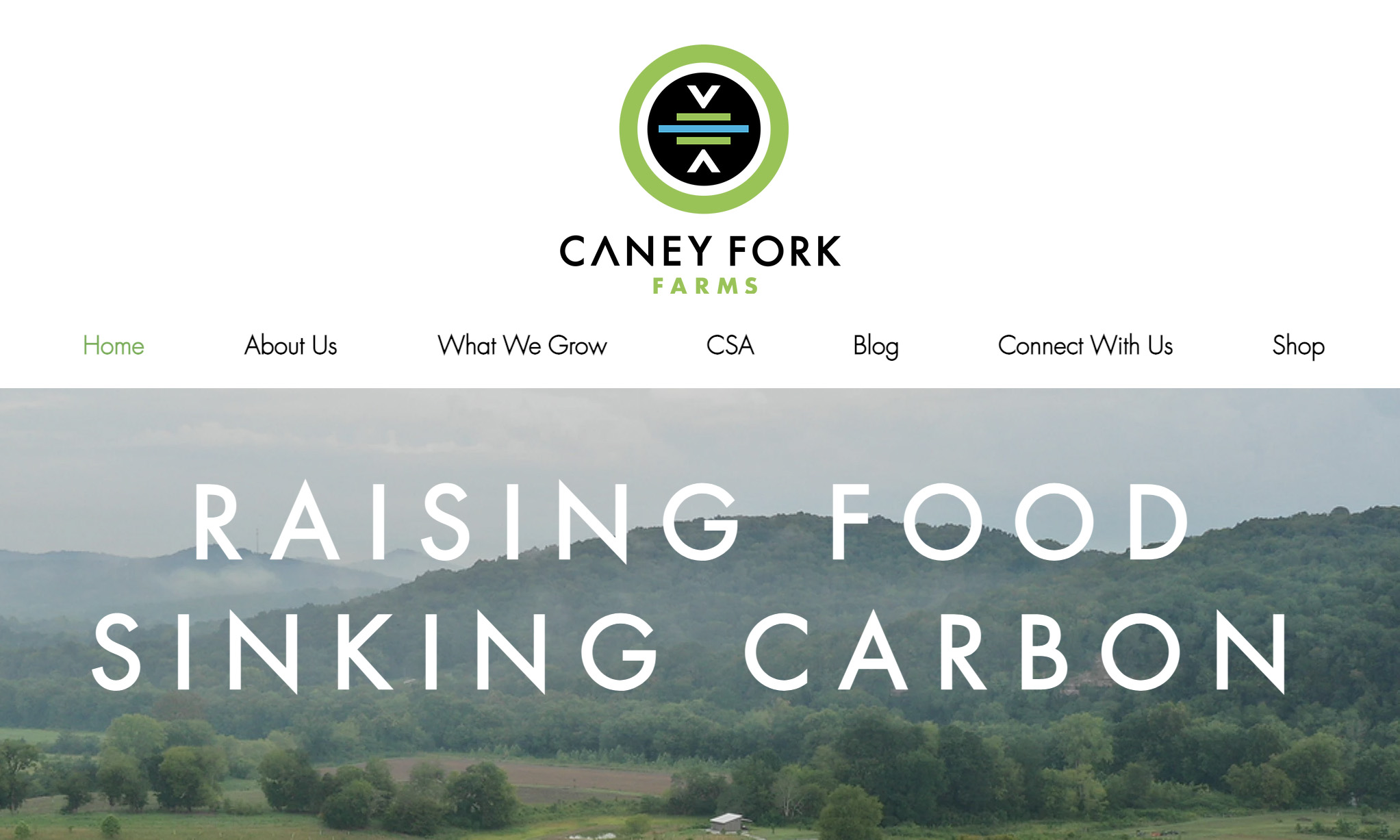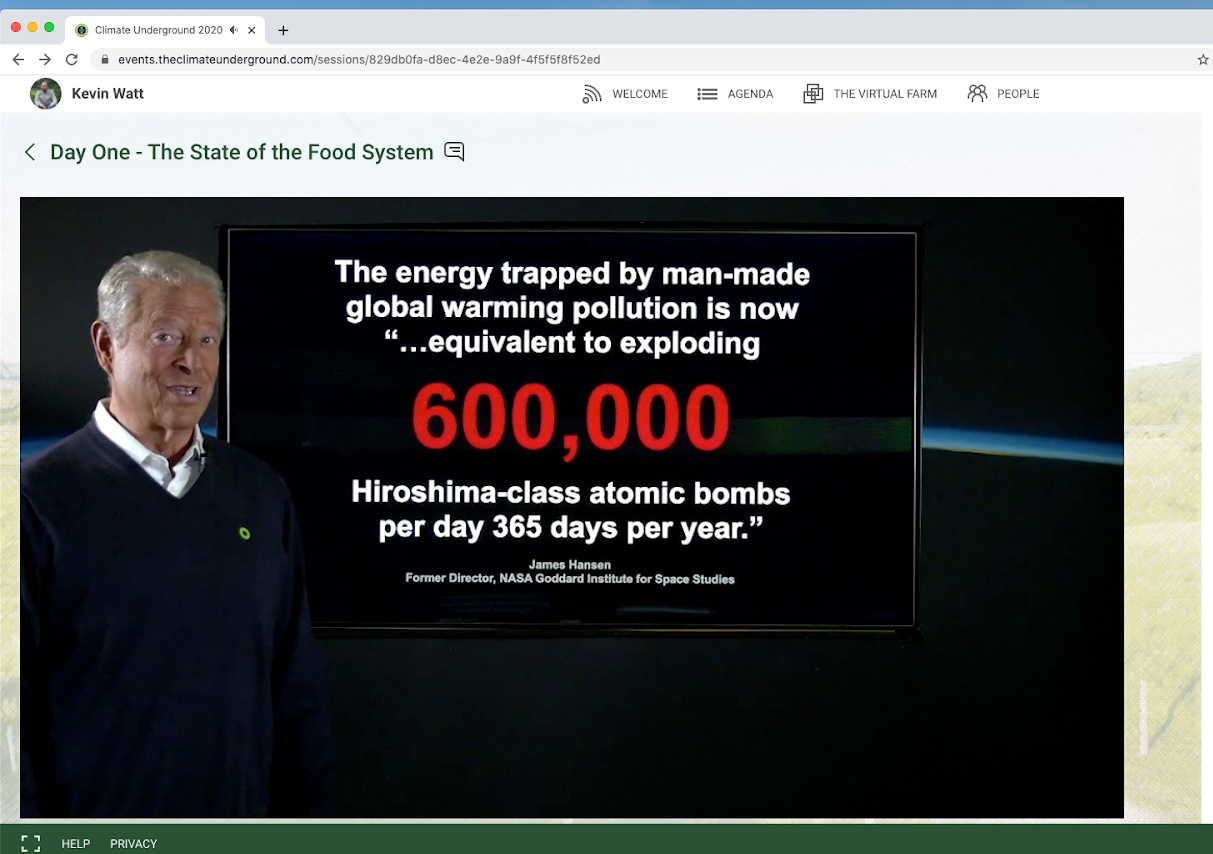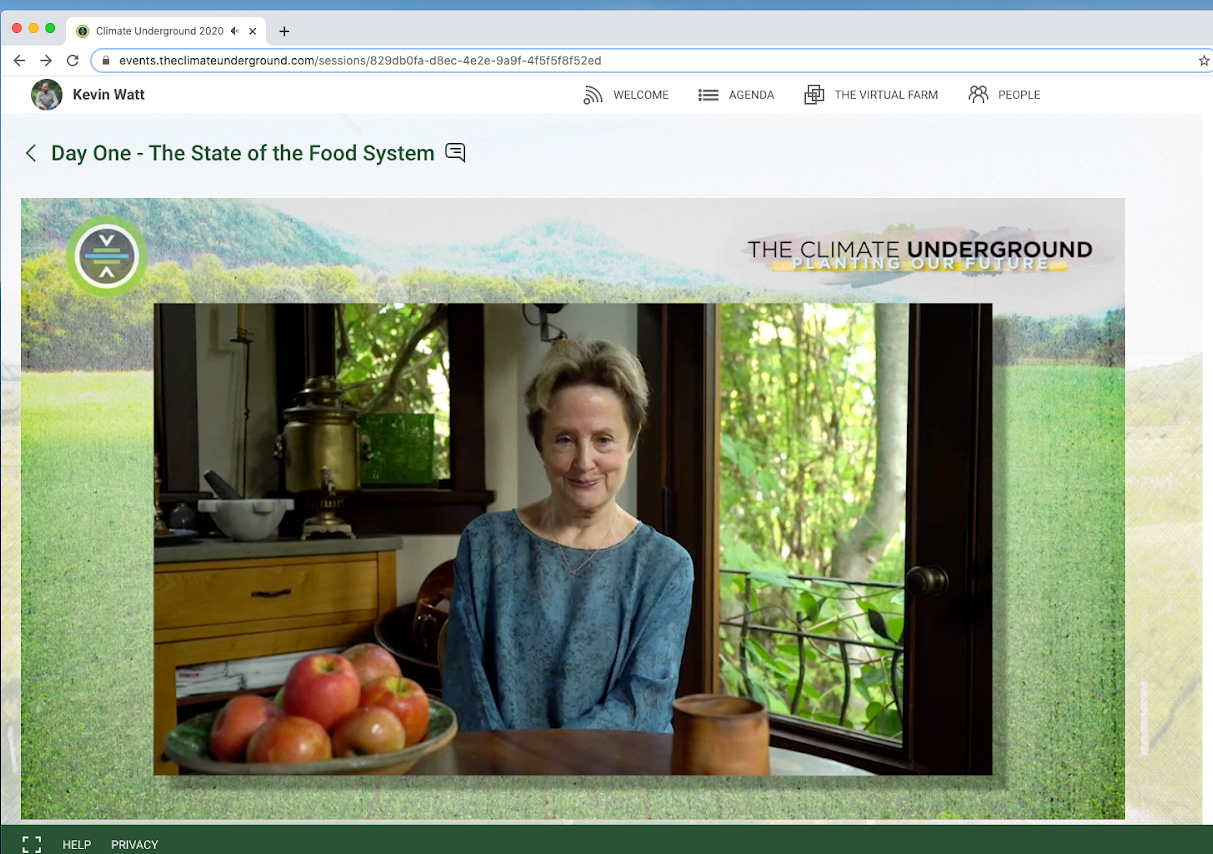Conference Recap – Climate Underground 2020 at Caney Fork Farms

By: Kevin Alexander Watt
 Last month, members of our team had the opportunity to attend the Climate Underground Conference hosted online by Caney Fork Farms. Caney Fork Farms is an organic crop and livestock operation owned by former Vice President Al Gore focused on growing healthy and affordable food while inspiring others with “living proof that regenerative, organic farming in Tennessee benefits farmers, the community, and the environment.” The event was an inspiring, 3-day conference to explore the state of the food system including what can be done to accelerate adoption of regenerative agriculture, build resilient food systems, revitalize ecosystems, and stabilize the climate.
Last month, members of our team had the opportunity to attend the Climate Underground Conference hosted online by Caney Fork Farms. Caney Fork Farms is an organic crop and livestock operation owned by former Vice President Al Gore focused on growing healthy and affordable food while inspiring others with “living proof that regenerative, organic farming in Tennessee benefits farmers, the community, and the environment.” The event was an inspiring, 3-day conference to explore the state of the food system including what can be done to accelerate adoption of regenerative agriculture, build resilient food systems, revitalize ecosystems, and stabilize the climate.

The conference began with a talk by Mr. Gore on the accelerating impacts of climate change and the promise of regenerative agriculture. He noted that the Intergovernmental Panel on Climate Change (IPCC) estimates that the global food system accounts for approximately 28% of all global warming pollution, 10-12% from crop and livestock activities, 8-10% from land use and land-use change (including deforestation), and 5-10% from supply chain activities like transportation and food waste.
While this is a serious challenge, he noted, it is also an incredible opportunity to reduce greenhouse gas (GHG) emissions by sequestering atmospheric carbon dioxide in the soil and drawing down previously emitted GHGs. Speaker Dr. Rattan Lal of Ohio State University and winner of the 2020 World Food Price stated that estimates for carbon sequestration in soil and vegetation has the “technical potential” to reduce atmospheric CO2 levels by 156 parts per million this century, more than 25% of the current atmospheric levels.

Alice Waters presenting online at Climate Underground 2020
Speakers included practitioners, scientists, food justice advocates, journalists, and chefs including Michael Pollan, Qiana Mickie, Naomi Starkman, Ricardo Salvador, Bill Salas, Rodney Rulon, Alice Waters, and many others. One of the central themes was the interconnection of the food system to all parts of our economy and society. Even COVID-19 was discussed as a pressing issue in the food system because of the impact it has had on the industrial food supply chain including disruption to markets, logistics, and production. The conference was an important reminder of how central the food system is for human justice and wellbeing, environmental health and biodiversity, and stability for the global climate. As conference speakers agreed, the time to act is now if we want to secure a healthy and resilient future for humans and the planet.